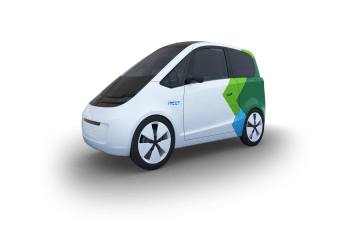

With a global consensus building up to eventually do away with fossil fuel driven vehicles over next two decades ( countries like France, Britain, Germany, Sweden, etc have set the deadline of 2040), automobile giants are shifting gears to expand their electric vehicles (EVs) portfolio. A knowledge paper recently unveiled by a noted research firm underlines aggressive moves which some of the front ranking automobile giants will be undertaking over the next decade to significantly expand their EV assembly lines.
German auto major Volkswagen is targeting one-fourth of its global sales through its electric vehicles range of products by 2025 and for this, it expects to have a portfolio of as many as 30 battery driven electric vehicles (BEVs). Mercedes Benz has committed an investment of over $1 billion in developing new models in the electric vehicle segment which are expected to be rolled out in the next few years. Diamler has drawn a war chest of $755 million to develop electric cars at its China facility. The investment would also be targeting developing viable battery solutions. Volvo has also announced its next big leap – production of only electric or hybrid vehicles after 2019. BMW too has promised to be ready with as many 25 new electric and hybrid vehicles by 2025.
Surprisingly, when it comes to the pecking order of the leading electric vehicles manufacturers in the world, the top slot went to Chinese automobile major BYD. According to an analysis by International Energy Agency, in 2016 BYD with a marketshare of 13.2 percent occupied the top slot in the list of top ten electric vehicle manufacturers in the world. Tesla occupied number two slot with 9.9 percent share followed by Volkswagen Group ( 8.2 percent). The traditional czars of global automobile business were ranked much below: BMW (7.6 percent) and Nissan (7.3 percent). Other noted names like General Motors, Mitsubishi and Renault had less than five percent marketshare in the global electric vehicle market.
Charging stations, a major bottleneck
The government may be pushing too hard for the promotion of electric vehicles’ actual usage on the Indian roads, industry insiders point out to very slow progress in setting up charging stations which is not giving enough confidence to the stakeholders to make aggressive moves. According to an estimate, while the volume of charging stations in China has grown by leaps and bounds in the recent years reaching in the vicinity of 2,00,000 units, in India the number is yet to touch four digit mark.
“Charging infrastructure is still at a miniscule level in the country which is majorly hindering the sales of electric vehicles in India. The country lacks a proper charging infrastructure to support the electric vehicles market, which majorly keeps the customer away from buying such vehicles,” observed a recent report released by noted research firm TechSci.
Industry insiders will tell you that there have been small moves made in the direction of improving charging stations network in the country. For instance, TATA group recently launched its commercial charging station for electric vehicles in Vikhroli,Mumbai. Finland’s Fortum, an active player in Indian solar space, has installed an AC 22KW charger for electric vehicles in New Delhi on a pilot basis, which will be maintained by NBCC. There is a strong speculation within the industry circles that to give a big ticket push to the segment, the government may invite bids to set up as many 4,000 charging stations in and around Delhi. And power utility firms like BEST, Reliance Energy and MSEDCL are believed to be firming up plans to step in this domain with a bang. “ There are a lot of speculative theories doing round that charging stations growth will be pushed from many directions but nothing concrete is visible as of now. Till infrastructure is not in place, other stakeholders will not push the pedal,” says senior official of a global energy equipment firm ( he did not wish to be named) which is waiting in the wings to become a prominent supplier for charging stations.
It is the lack of charging stations which is resulting in very low sales of electric vehicles in the country. According to TechSci, last year less than 2000 electric cars were sold whereas the volume of electric two-wheelers had stood around 23,000. On a cumulative basis, the value of Indian electric vehicles market at the end of 2017 is estimated to have stood at a meager $304 million.
The Indian Federation of Green Energy (IFGE) and the Embassy of Nepal have jointly organized…
Saudi Arabia’s Forward7 Initiative—formerly known as the Clean Fuel Solutions for Cooking Initiative—has collaborated with…
In a significant move toward advancing green energy and industrial growth in the state, Himachal…
Golabl chemical conglomerate BASF has announced that its now offering the world’s first biomass-balanced polyethersulfone…
In a crucial stint to bolster the biogas sector and sustainable dairying in the country,…
TotalEnergies SE has received approval to proceed with its Middlebrook solar and battery project in…